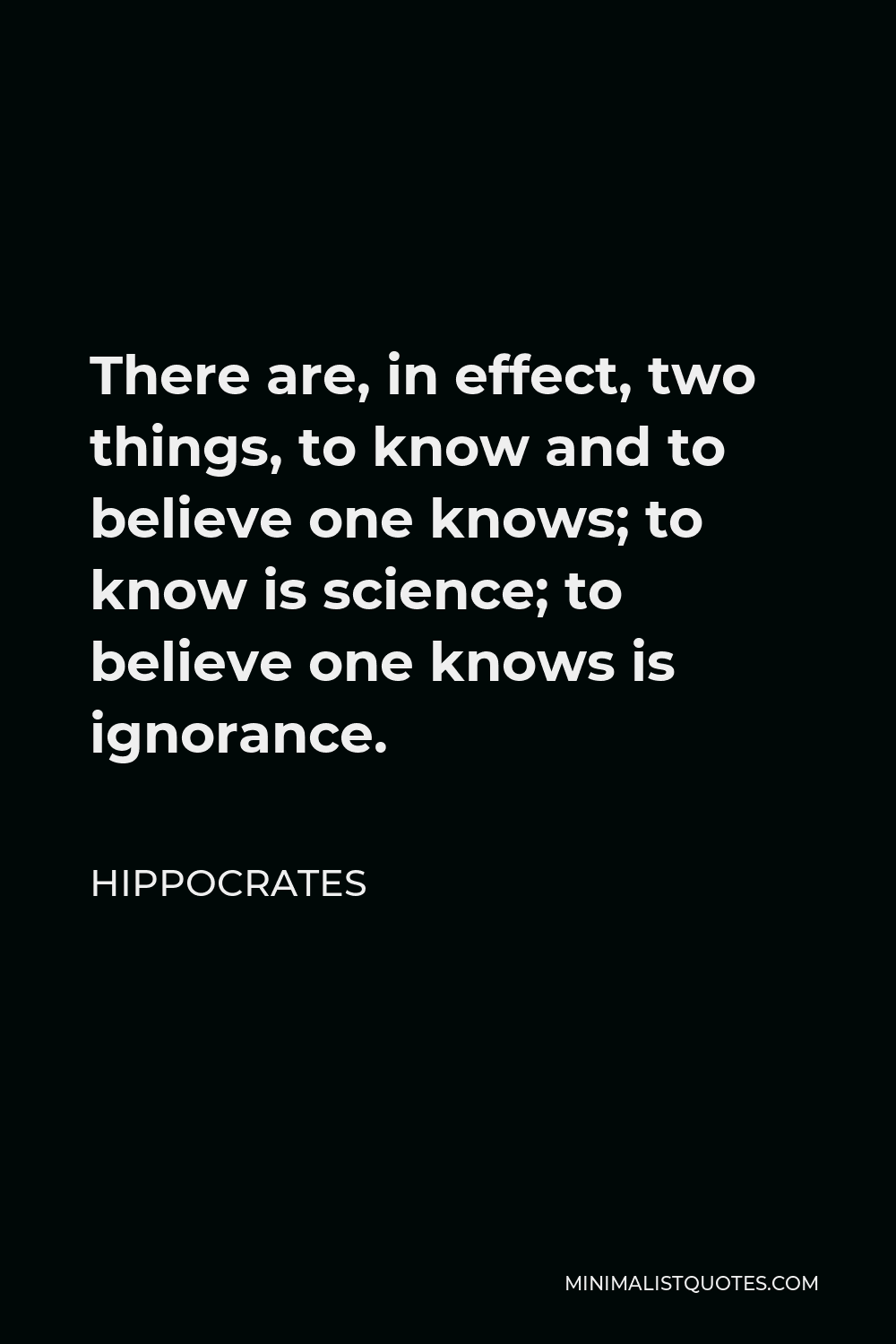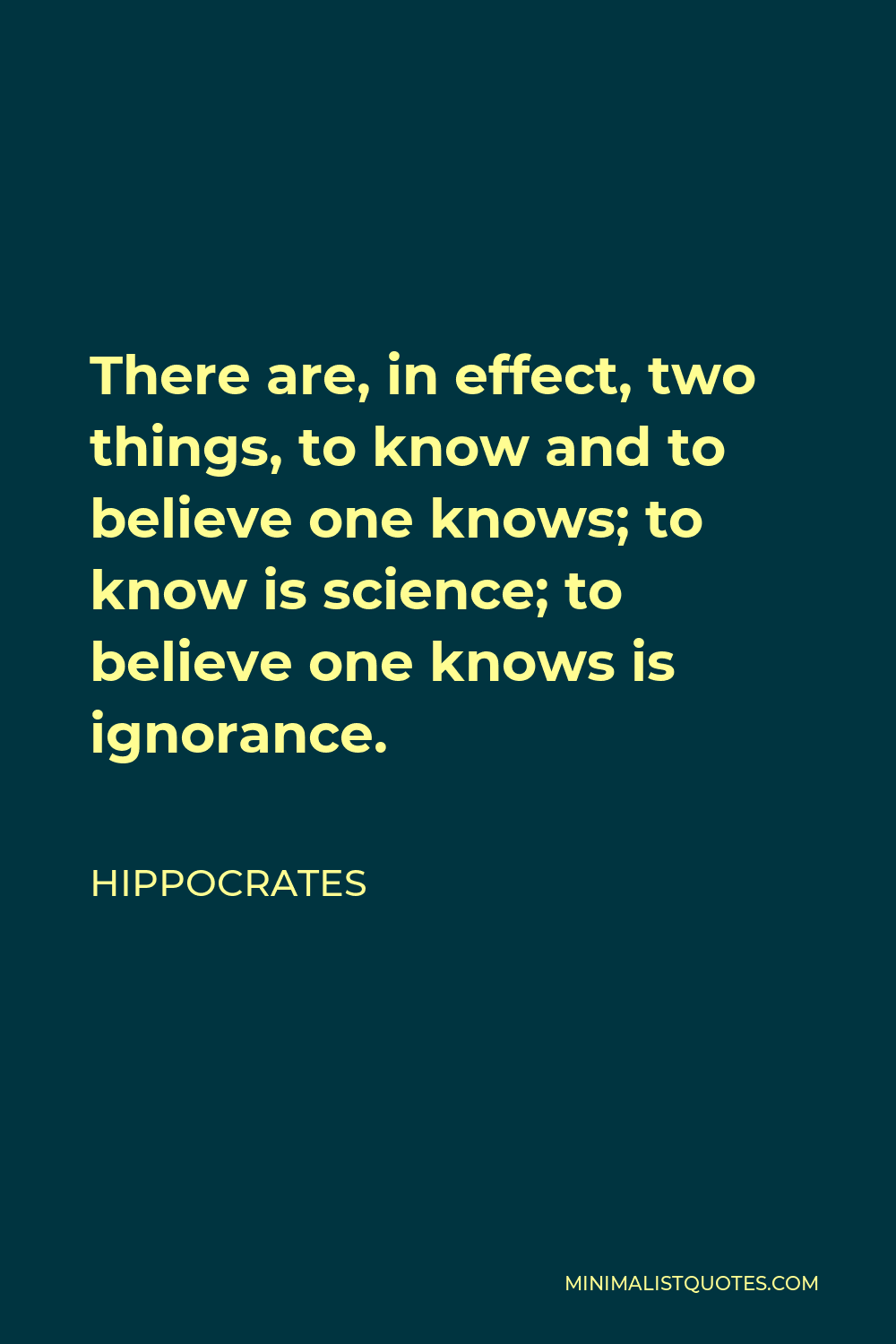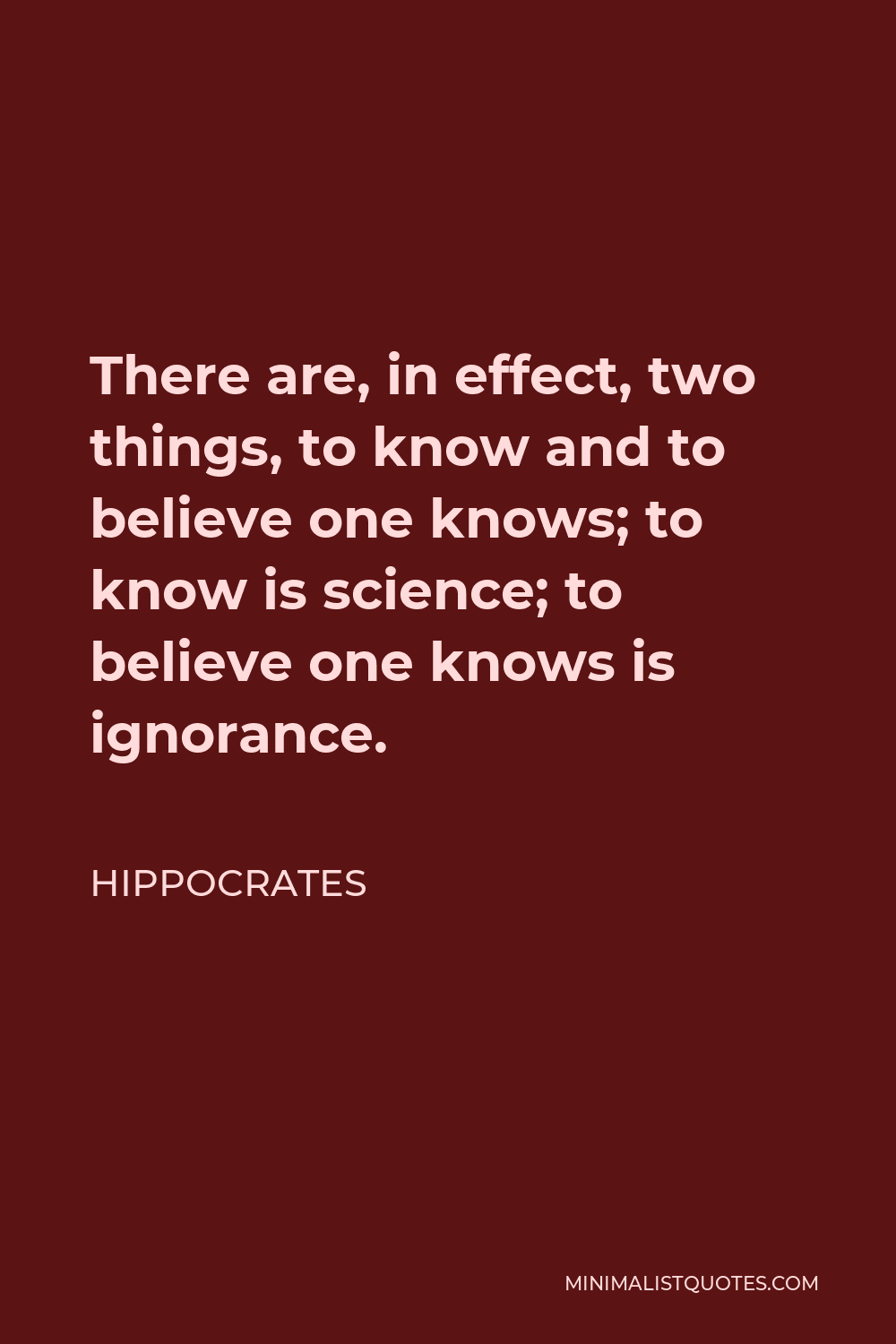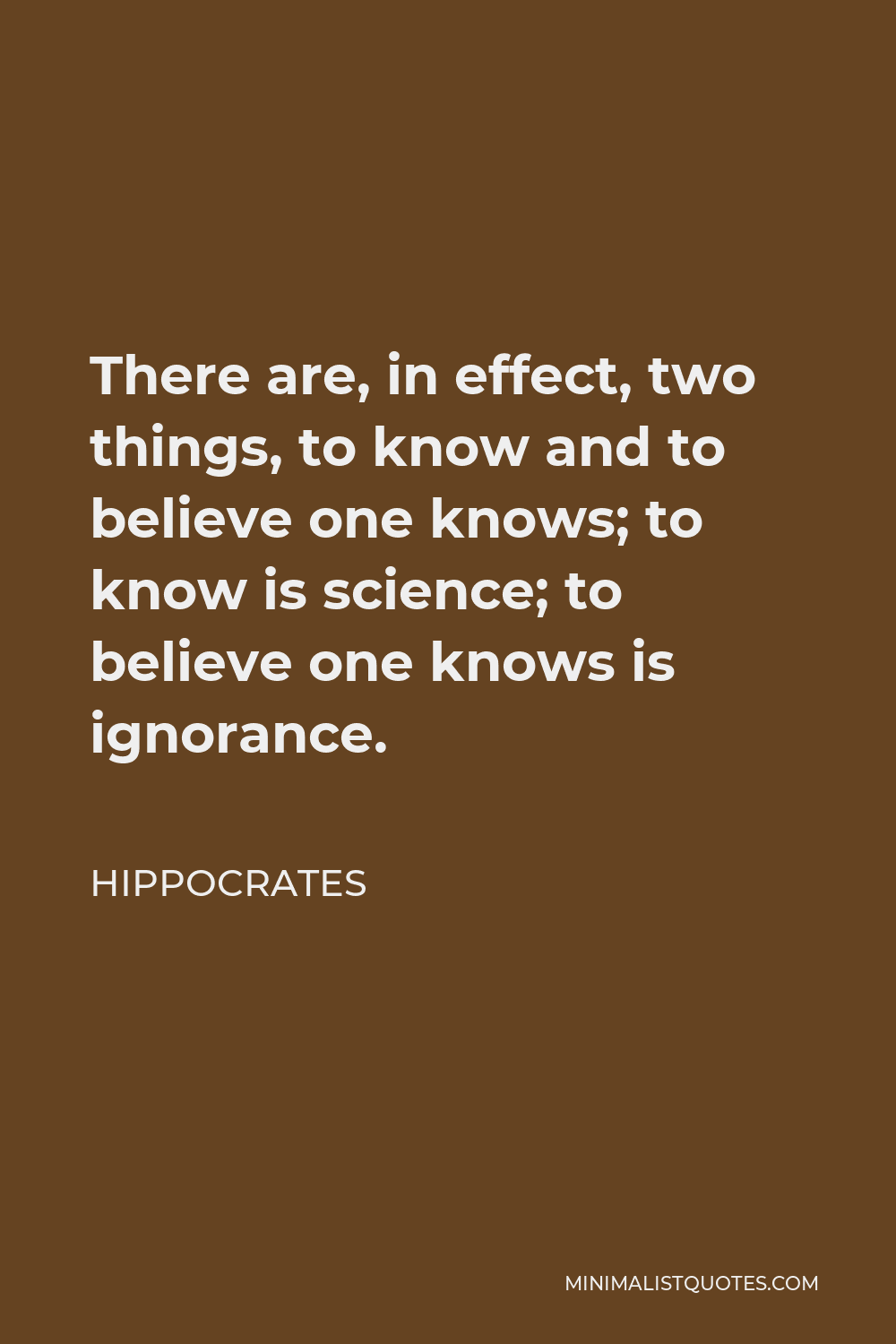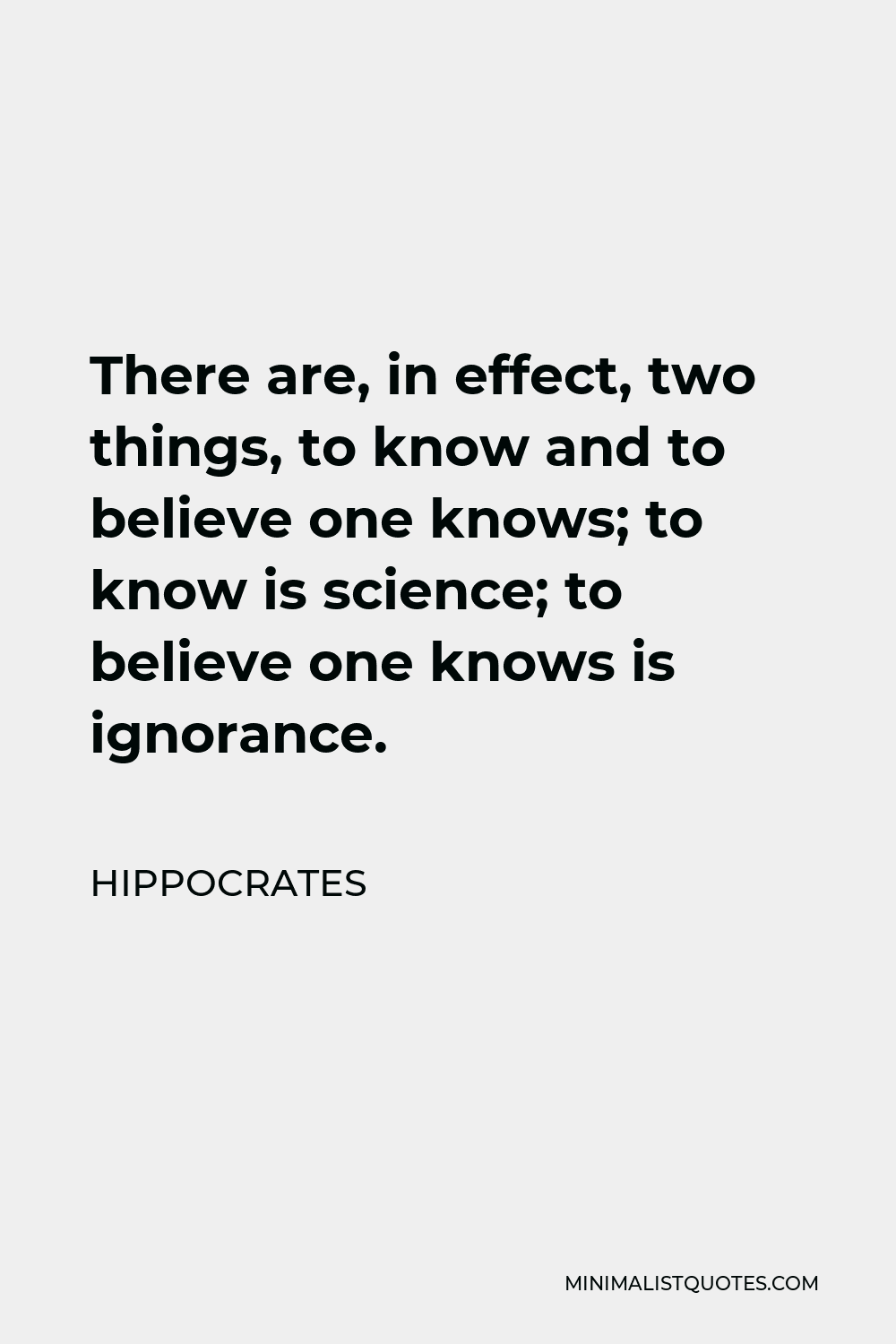Wherever the art of Medicine is loved, there is also a love of Humanity.
HIPPOCRATESThere are, in effect, two things, to know and to believe one knows; to know is science; to believe one knows is ignorance.
More Hippocrates Quotes
-





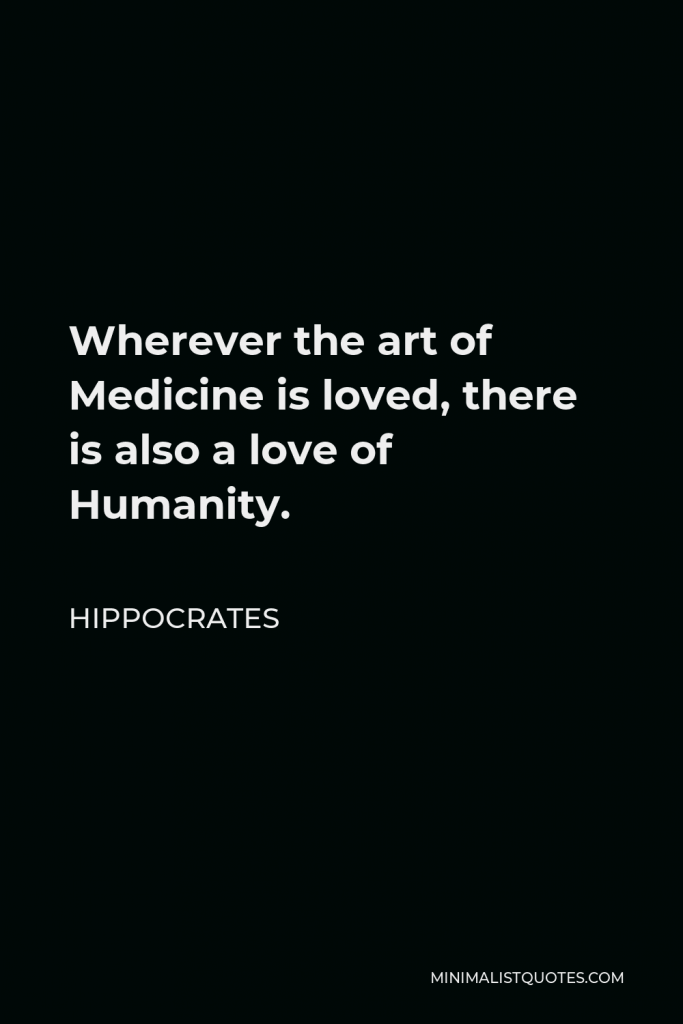

-





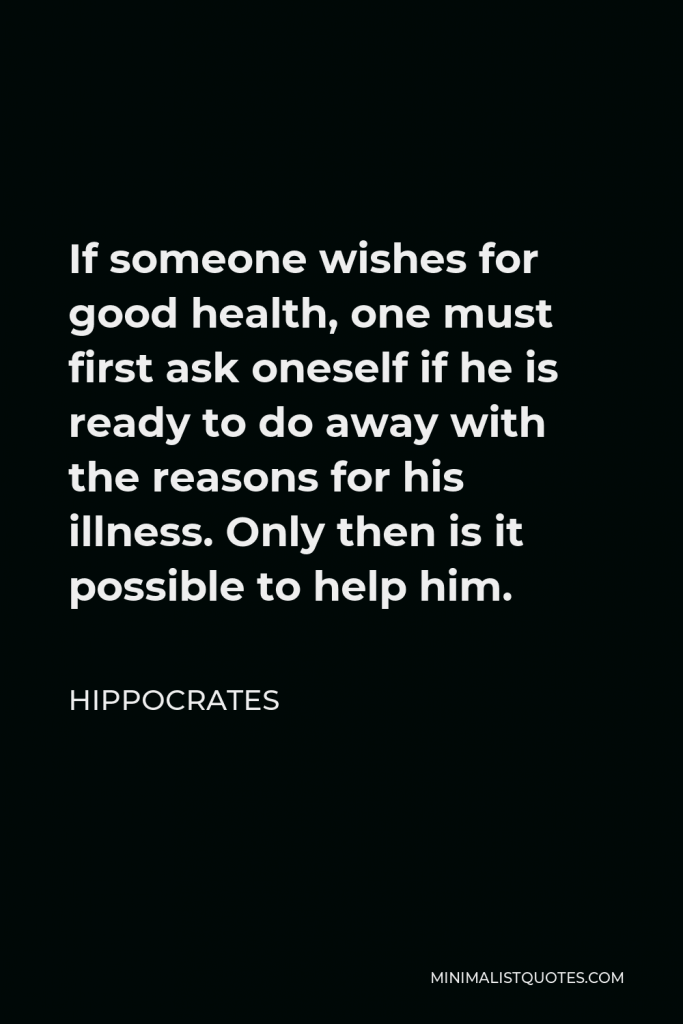

If someone wishes for good health, one must first ask oneself if he is ready to do away with the reasons for his illness. Only then is it possible to help him.
HIPPOCRATES -





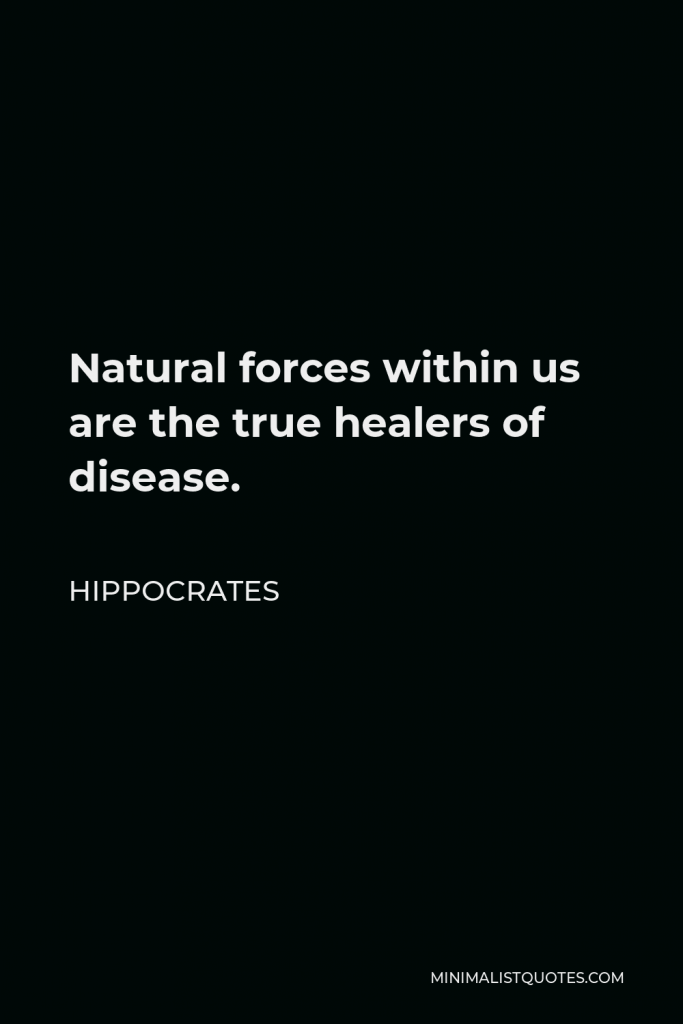

Natural forces within us are the true healers of disease.
HIPPOCRATES -





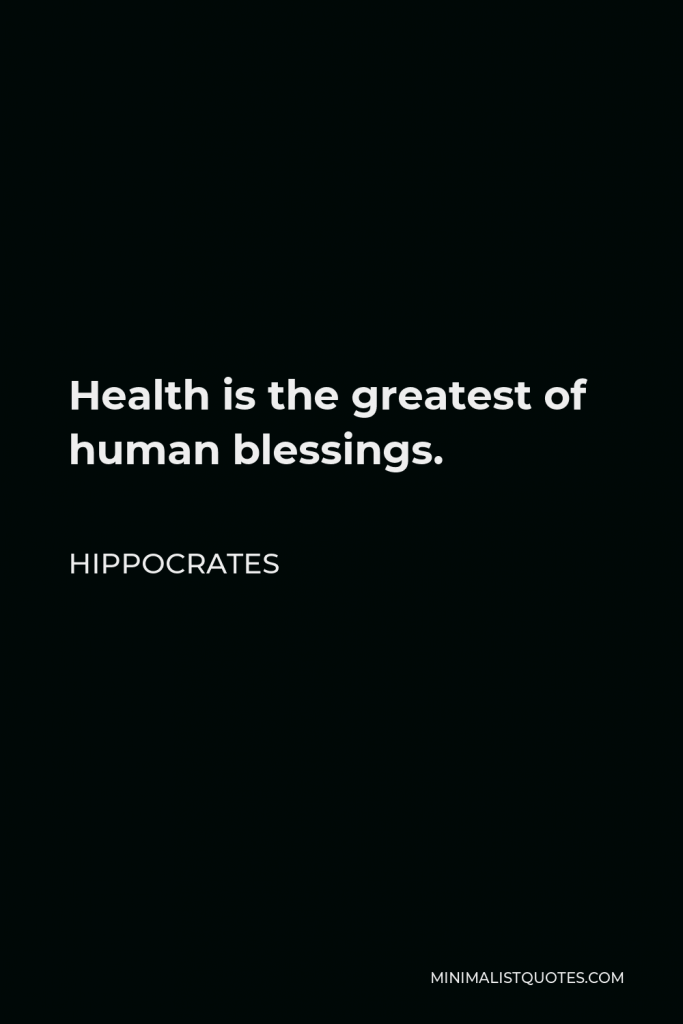

Health is the greatest of human blessings.
HIPPOCRATES -





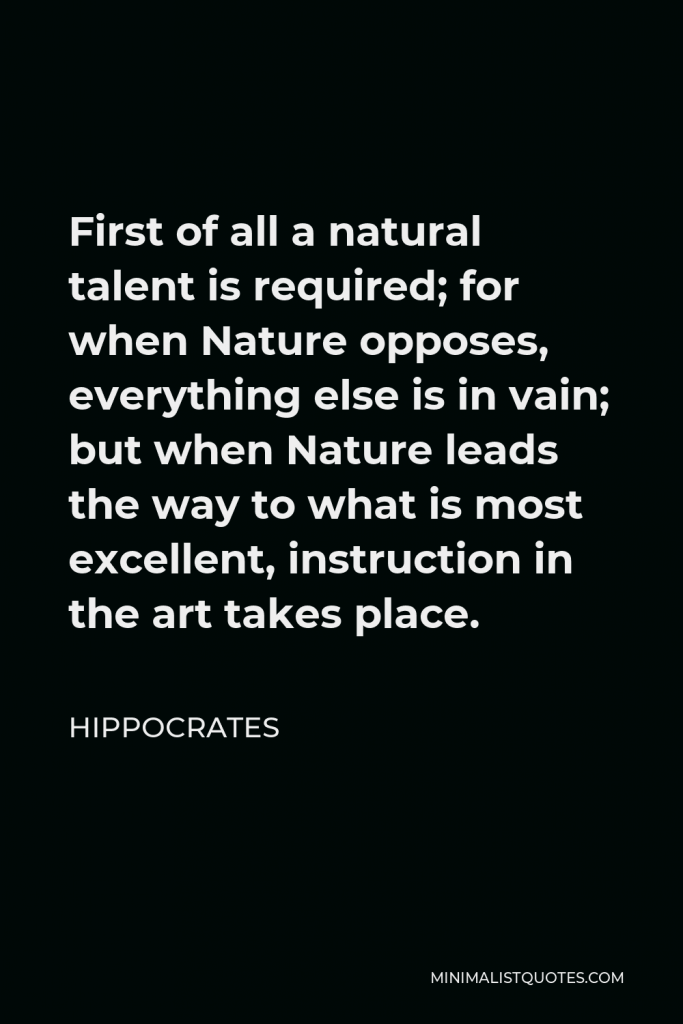

First of all a natural talent is required; for when Nature opposes, everything else is in vain; but when Nature leads the way to what is most excellent, instruction in the art takes place.
HIPPOCRATES -





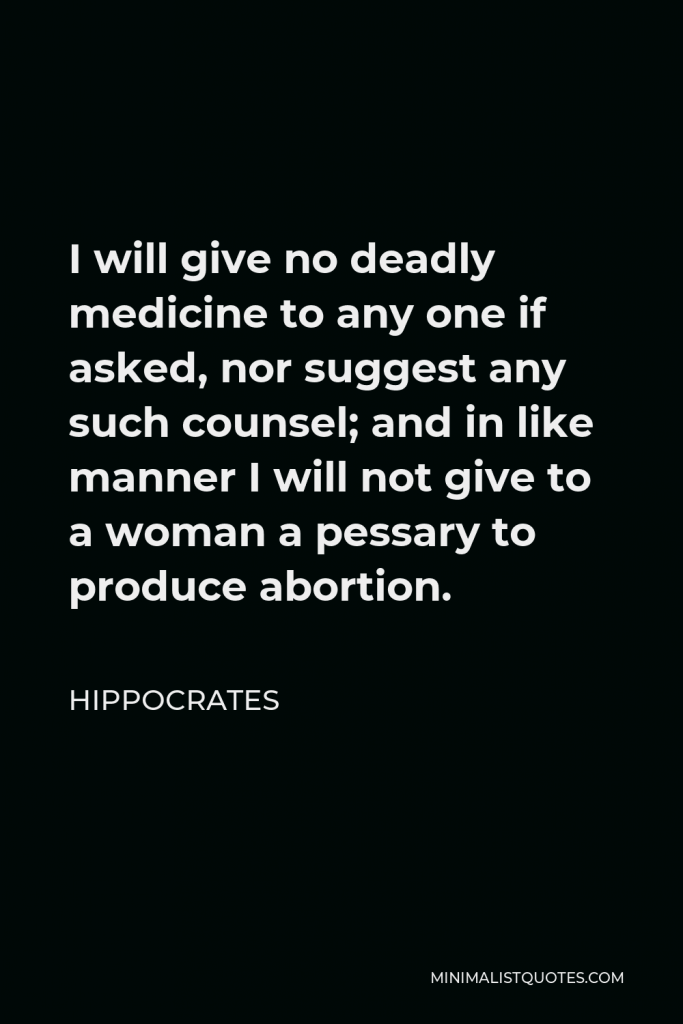

I will give no deadly medicine to any one if asked, nor suggest any such counsel; and in like manner I will not give to a woman a pessary to produce abortion.
HIPPOCRATES -





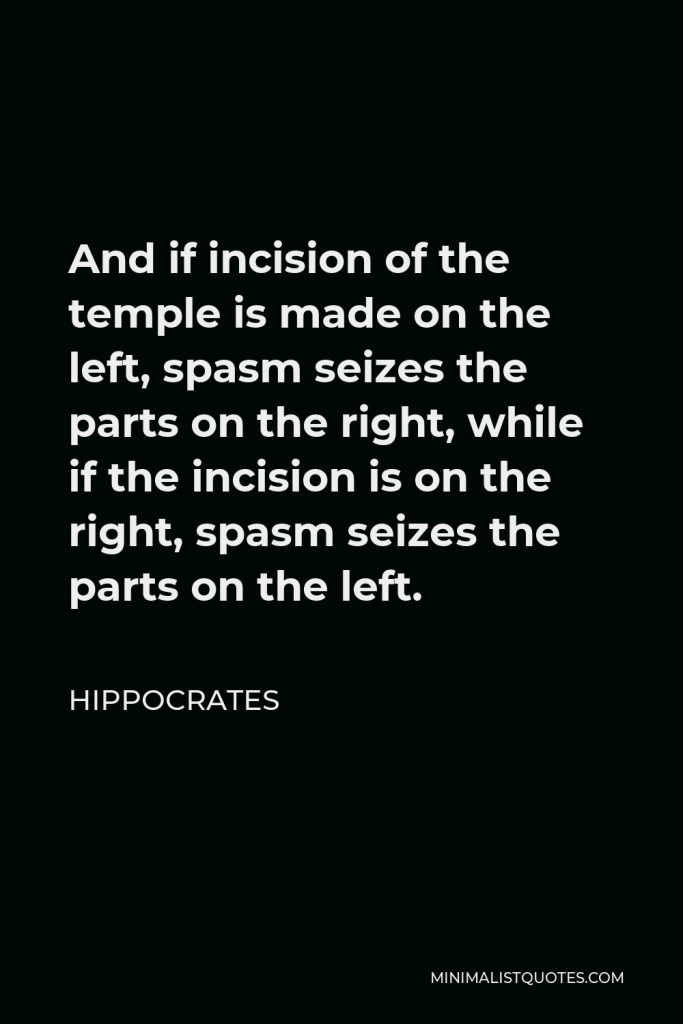

And if incision of the temple is made on the left, spasm seizes the parts on the right, while if the incision is on the right, spasm seizes the parts on the left.
HIPPOCRATES -





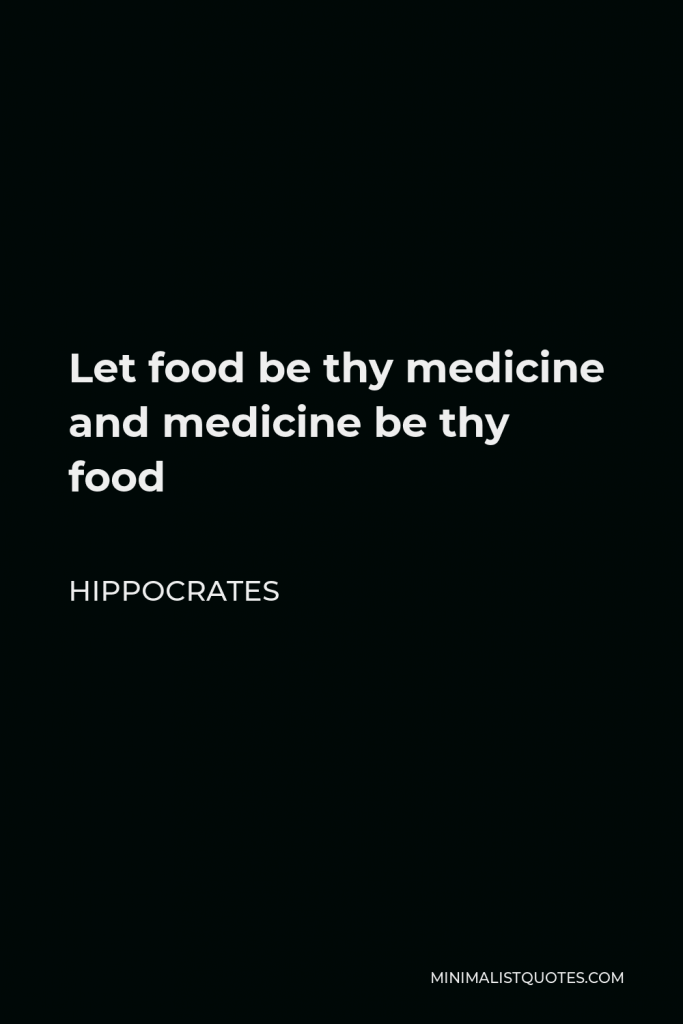

Let food be thy medicine and medicine be thy food
HIPPOCRATES -





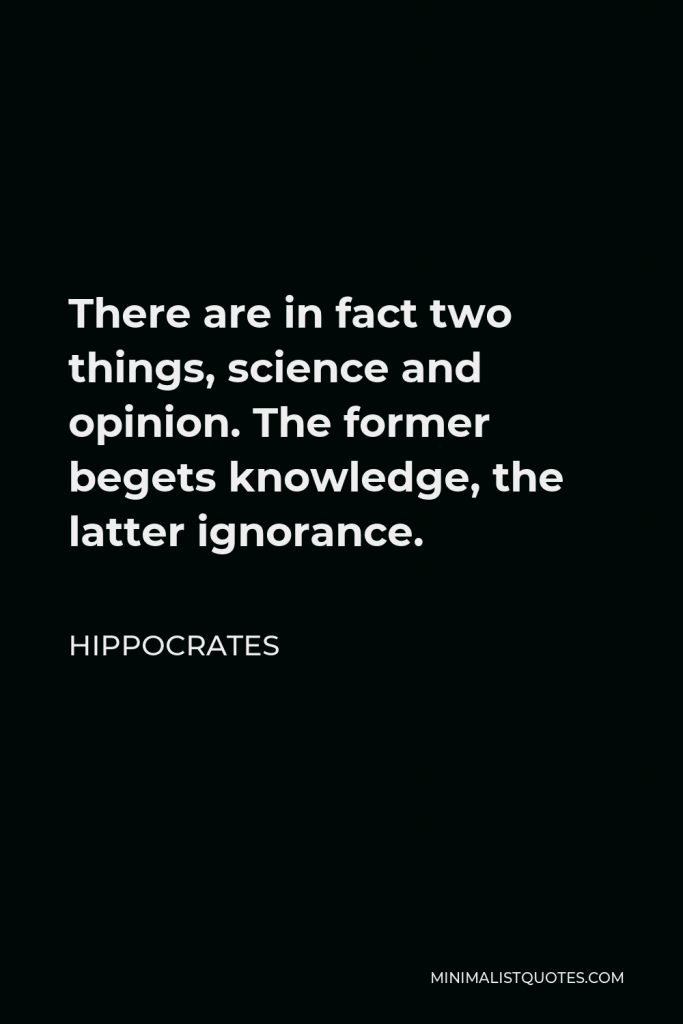

There are in fact two things, science and opinion. The former begets knowledge, the latter ignorance.
HIPPOCRATES -





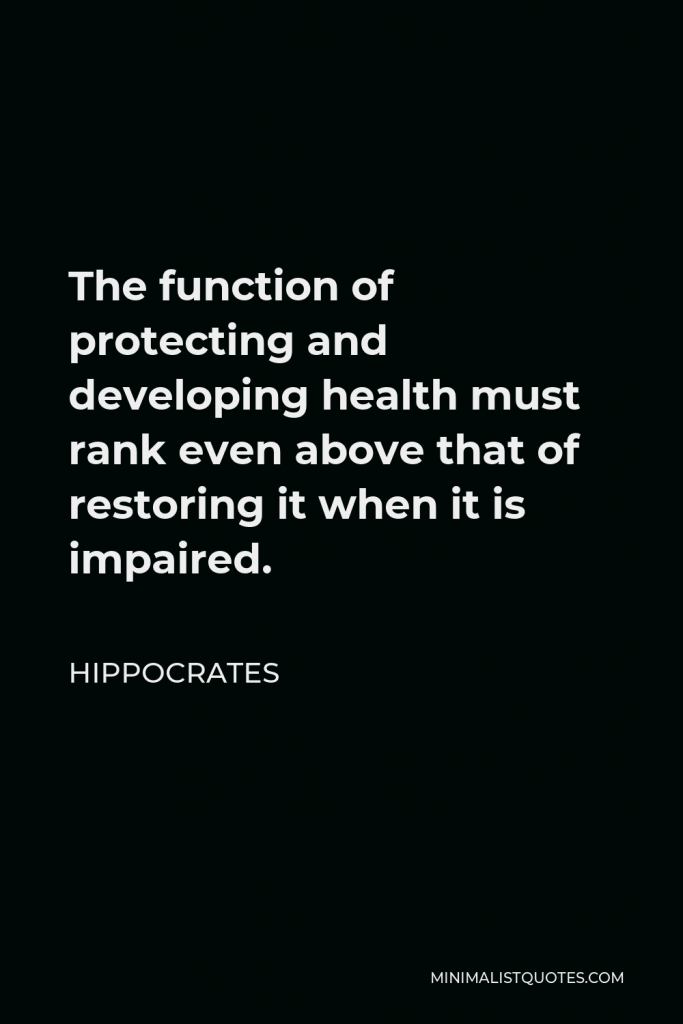

The function of protecting and developing health must rank even above that of restoring it when it is impaired.
HIPPOCRATES -





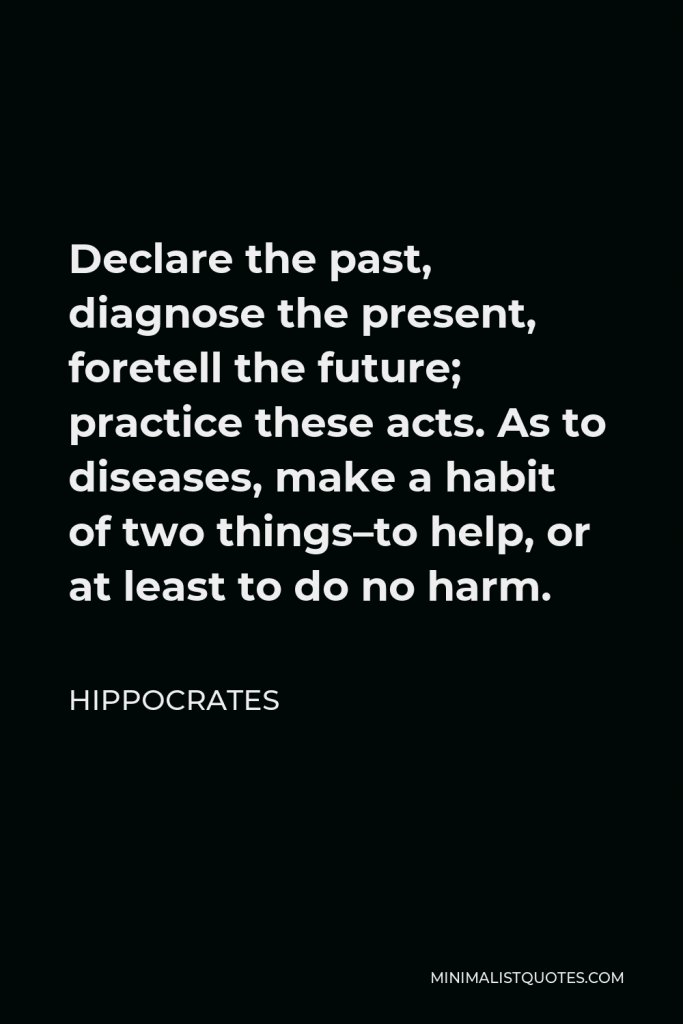

Declare the past, diagnose the present, foretell the future.
HIPPOCRATES -





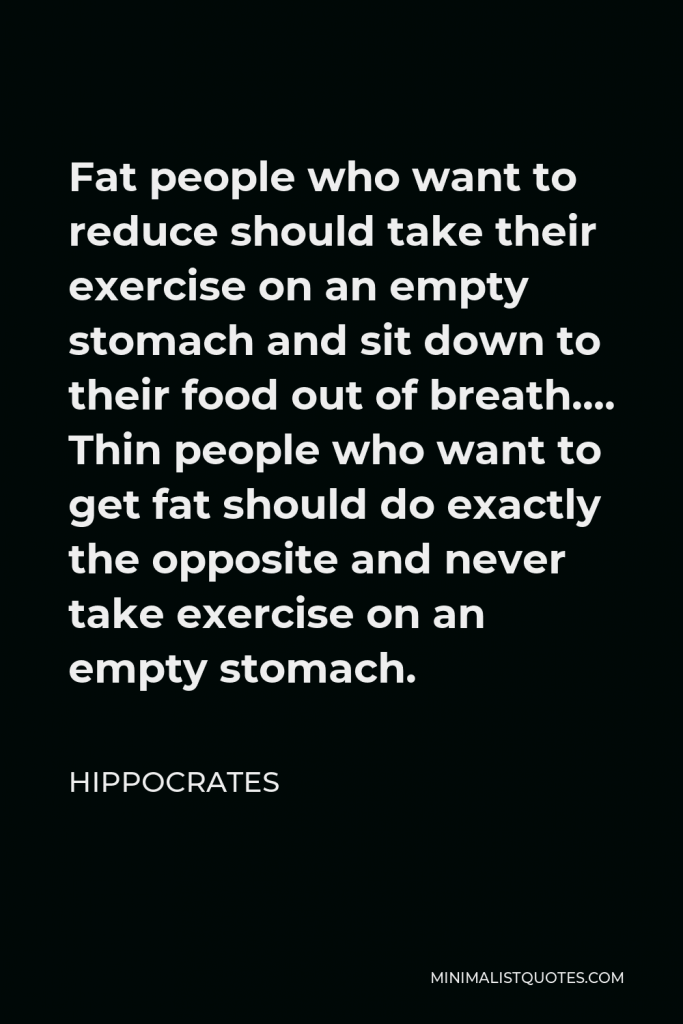

Fat people who want to reduce should take their exercise on an empty stomach and sit down to their food out of breath…. Thin people who want to get fat should do exactly the opposite and never take exercise on an empty stomach.
HIPPOCRATES -





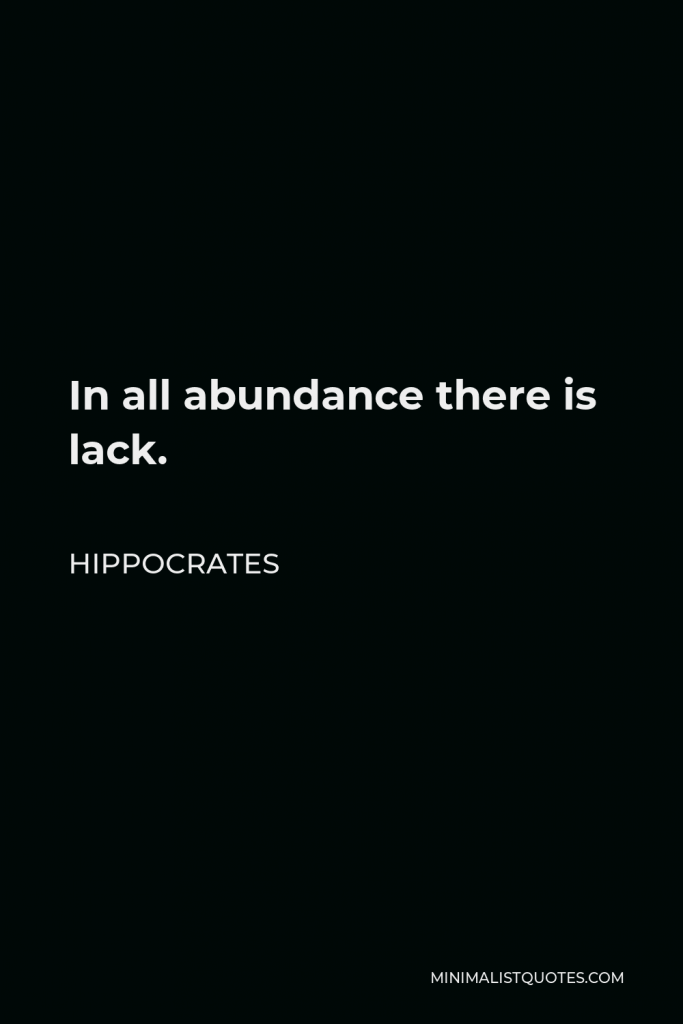

In all abundance there is lack.
HIPPOCRATES -





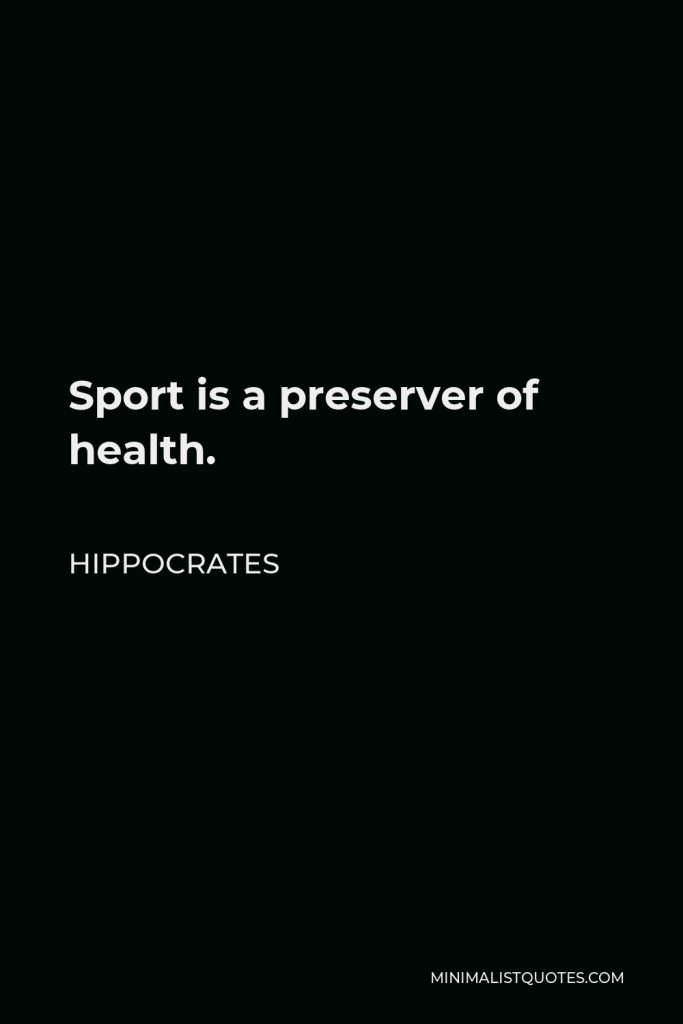

Sport is a preserver of health.
HIPPOCRATES -





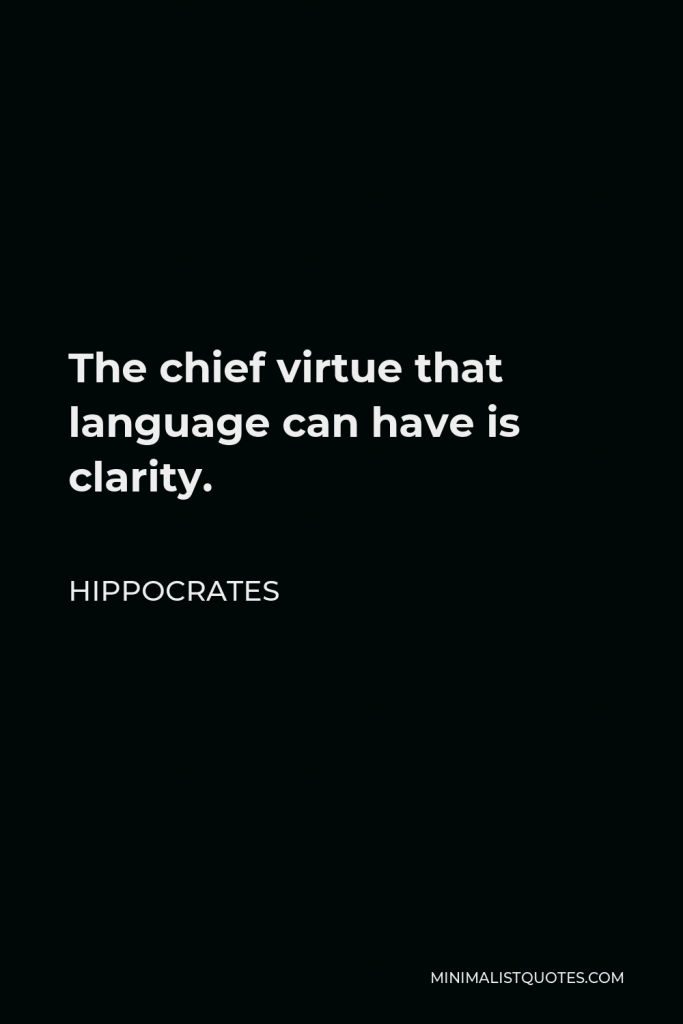

The chief virtue that language can have is clarity.
HIPPOCRATES -







Leave your drugs in the chemist’s pot if you can heal the patient with food.
HIPPOCRATES
